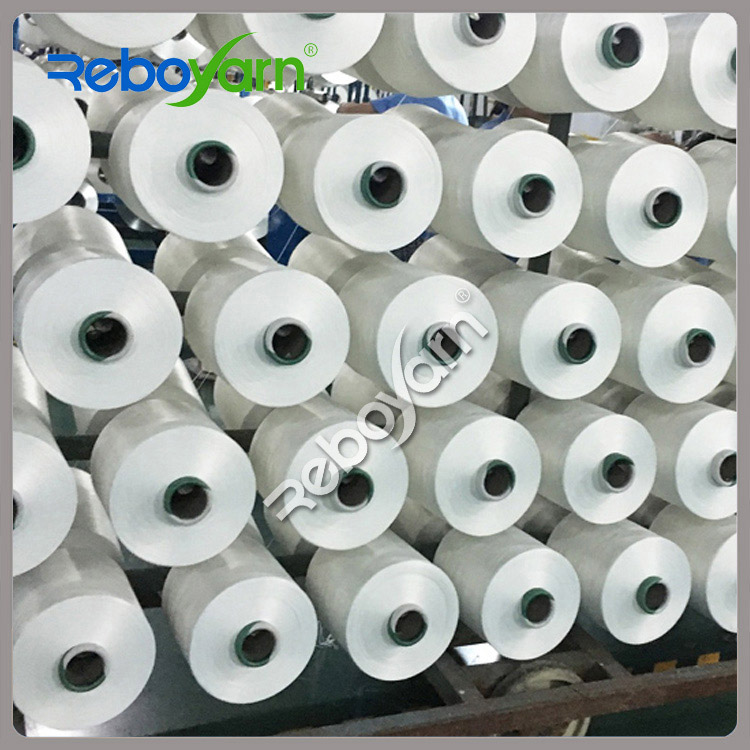Recycled Polyester DTY: Paving the Way for Sustainable Fashion
2024-10-16
As the fashion industry increasingly acknowledges its environmental impact, innovative materials are emerging to meet the demand for sustainable alternatives. One such material is Recycled Polyester DTY (Drawn Textured Yarn), which is revolutionizing how we think about textiles and fashion. This blog explores the benefits, production processes, applications, and future potential of Recycled Polyester DTY in promoting a more sustainable and circular fashion industry.
What is Recycled Polyester DTY?
Recycled Polyester DTY is a type of yarn produced from post-consumer plastic bottles and other recycled polyester materials. The term "DTY" refers to the process of drawing and texturing the yarn, which gives it unique characteristics like softness, elasticity, and versatility. This process allows manufacturers to create high-quality textile products while significantly reducing the environmental impact compared to traditional polyester production.
Key Features
- Sustainability: Made from recycled materials, Recycled Polyester DTY reduces the reliance on virgin petroleum-based resources.
- Durability: Polyester is known for its strength and resilience, making it an excellent choice for various textile applications.
- Versatility: Available in different colors, textures, and thicknesses, Recycled Polyester DTY can be used for a wide range of products.
The Production Process of Recycled Polyester DTY
The production of Recycled Polyester DTY involves several steps:
1. Collection and Sorting
The process begins with the collection of post-consumer PET plastic bottles and other polyester waste. These materials are sorted to remove contaminants and ensure high-quality inputs for recycling.
2. Cleaning and Processing
The sorted plastics are cleaned and processed to remove labels, caps, and any other foreign materials. This step is crucial to ensure that the final product is free of impurities.
3. Shredding and Extrusion
The cleaned plastics are shredded into small flakes, which are then melted and extruded into long continuous filaments. This process helps to convert the plastic waste into usable yarn.
4. Drawing and Texturing
Once the polyester filaments are produced, they undergo a drawing process to increase strength and elongation. Following this, the yarn is textured, giving it the desired characteristics for textile applications.
5. Dyeing and Finishing
Recycled Polyester DTY can be dyed and finished to achieve various aesthetic qualities, ensuring it meets the design needs of different applications.
Applications of Recycled Polyester DTY
Recycled Polyester DTY has a wide range of applications across various industries, making it a versatile choice for manufacturers. Some of its most common uses include:
1. Fashion and Apparel
Recycled Polyester DTY is increasingly used in the fashion industry to produce clothing, activewear, and accessories. Brands are embracing this material to create stylish, eco-friendly garments that appeal to environmentally conscious consumers.
2. Home Textiles
From curtains to upholstery, Recycled Polyester DTY is used in home textiles, providing durability and aesthetic appeal while promoting sustainability.
3. Sports and Outdoor Gear
The strength and moisture-wicking properties of Recycled Polyester DTY make it an ideal choice for sportswear and outdoor gear, including jackets, backpacks, and tents.
4. Automotive Fabrics
Recycled Polyester DTY is also finding its way into the automotive industry, where it is used in seat covers and interior textiles, contributing to more sustainable manufacturing practices.
Benefits of Recycled Polyester DTY
The adoption of Recycled Polyester DTY offers several key benefits:
1. Environmental Impact
By using recycled materials, Recycled Polyester DTY significantly reduces plastic waste in landfills and oceans. This helps mitigate the environmental damage caused by plastic pollution.
2. Reduced Carbon Footprint
The production of Recycled Polyester DTY requires less energy compared to virgin polyester, leading to a lower carbon footprint. This is a critical step toward reducing the overall environmental impact of the textile industry.
3. Resource Conservation
Using recycled materials helps conserve natural resources by reducing the need for petroleum extraction and processing. This contributes to a more sustainable and circular economy.
4. Consumer Appeal
As consumers become more environmentally conscious, products made from Recycled Polyester DTY can attract eco-minded buyers, enhancing brand reputation and loyalty.
The Future of Recycled Polyester DTY
The future of Recycled Polyester DTY looks promising, with ongoing advancements in recycling technologies and increasing awareness of sustainable practices within the fashion industry. As more brands commit to sustainability, the demand for recycled materials is likely to grow. This trend is supported by:
1. Innovation in Recycling Technologies
Continuous research and development in recycling processes are making it easier and more efficient to convert waste into high-quality materials. This innovation will likely expand the availability of Recycled Polyester DTY.
2. Legislation and Regulations
Government initiatives aimed at reducing plastic waste and promoting sustainable practices are driving industries to adopt recycled materials. These regulations will support the growth of the recycled textile market.
3. Consumer Demand
As consumers increasingly prioritize sustainability, brands that utilize Recycled Polyester DTY will likely see a competitive advantage. This demand will encourage more manufacturers to explore recycled materials.
Conclusion
Recycled Polyester DTY is a game-changing material that embodies the principles of sustainability and innovation in the fashion industry. By leveraging recycled resources, it offers a solution to the environmental challenges posed by traditional textiles. As we move toward a more sustainable future, Recycled Polyester DTY will play a crucial role in reshaping how we produce and consume textiles, paving the way for a cleaner, greener planet.



